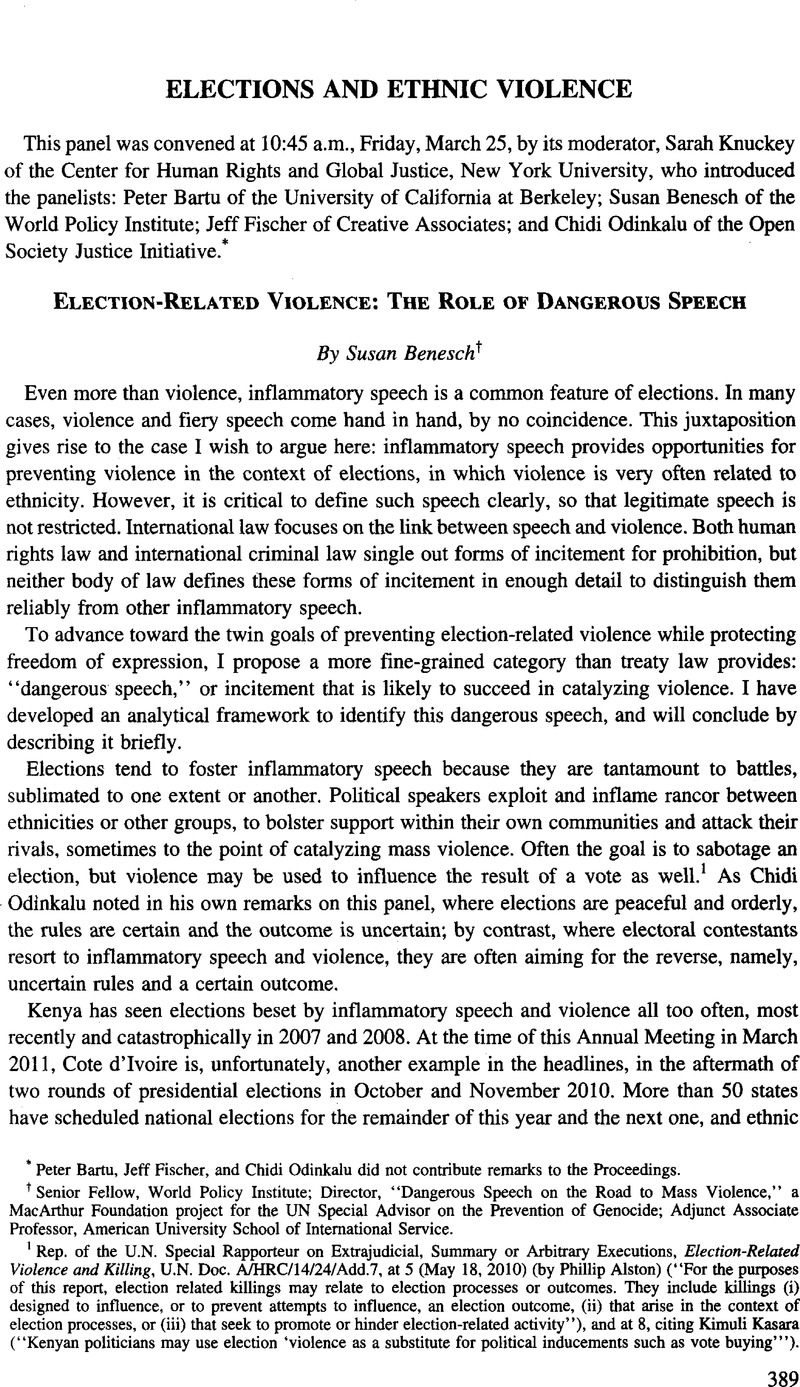No CrossRef data available.
Published online by Cambridge University Press: 28 February 2017

1 Rep. of the U.N. Special Rapporteur on Extrajudicial, Summary or Arbitrary Executions, Election-Related Violence and Killing, U.N. Doc. A/HRC/14/24/Add.7, at 5 (May 18, 2010) (by Phillip Alston) (“For the purposes of this report, election related killings may relate to election processes or outcomes. They include killings (i) designed to influence, or to prevent attempts to influence, an election outcome, (ii) that arise in the context of election processes, or (iii) that seek to promote or hinder election-related activity”), and at 8, citing Kimuli Kasara (“Kenyan politicians may use election ‘violence as a substitute for political inducements such as vote buying”‘).
2 For detailed discussion of this and related points, see Benesch, Susan, Vile Crime or Inalienable Right: Defining Incitement to Genocide, 48 Va. J. Intl L. 3 (2008)Google Scholar, available at http://papers.ssm.com/sol3/papers.cfm?abstract_id=1121926.
3 The UN High Commissioner on Human Rights (OHCHR) is presently surveying national laws to prohibit incitement to national, racial, or religious hatred worldwide, in a series of expert workshops on the implementation of Article 20 of the ICCPR. Details on this initiative are available at http.7/www2.ohchr.org/english/issues/opinion/articles1920_ICCPR/.
4 The exception is hate speech as a form of persecution, in the context of crimes against humanity.
5 Inflammatory speech is only one of a complex series of factors that contribute to increasing the likelihood of violence, in a process that is still poorly understood. However, quantitative evidence of a correlation between inflammatory speech and mass violence has recently emerged for the first time. See David Yanagizawa-Drott, Propaganda and Conflict: Theory and Evidence from the Rwandan Genocide (draft on file with author).
6 Prosecutor v. Bikindi, Case No. ICTR-01-72-T, Judgment and Sentence (Int’l Crim. Trib. for Rwanda Dec. 2, 2008).
7 Des Forges, Alison, Leave None to Tell the Story: Genocide in Rwanda 66 (1999)Google Scholar.